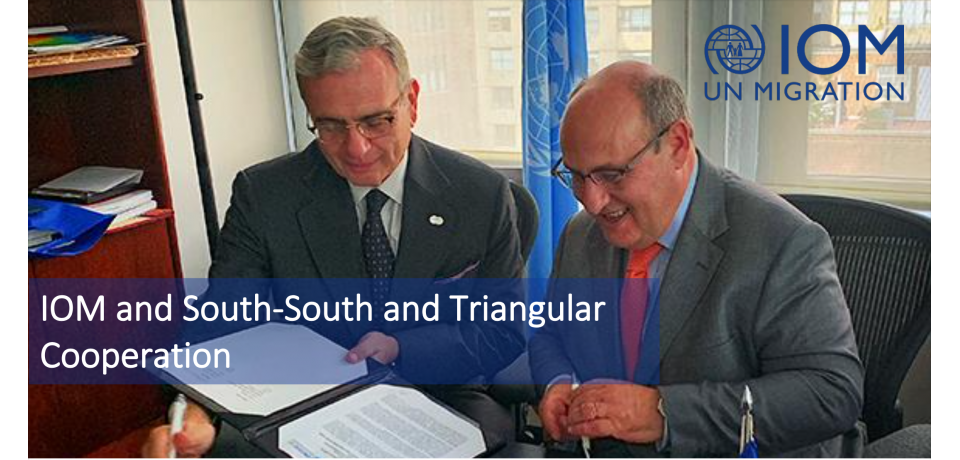IOM and South-South and Triangular Cooperation
Objetivos de Desarrollo Sostenible Relacionados y Objetivos del Pacto Mundial sobre Migración
More people migrate within the Global South (37% of all international migrants) than from the South to the North (35%), and South-South migration growth continues to outpace South-North migration. Between 2000 and 2017, the proportion of international migrants born in the Global South grew from 67% to 72%. At the same time, the Global South – and notably the least developed countries (LDCs) – bear the brunt of the global displacement crisis (LDCs account for around 14% of the world’s population, but host 53% of all IDPs), and is also dependent on migration: 19 of the 20 countries most dependent on remittances as a per cent of their GDP are in the South.
Migration and sustainable development are inextricably linked. And migration can be both a development outcome and a development strategy. But these benefits are not guaranteed, particularly in a context where migration broadly takes place in countries with more challenging development contexts in the Global South.
Building on the progress declaration from the first International Migration Review Forum (IMRF), that reaffirmed the Global Compact for Safe, Orderly and Regular Migration as a framework for strengthened multilateral cooperation among countries of origin, transit and destination, the International Organization for Migration (IOM) is committed to the promotion of good migration governance through South-South Cooperation (SSC) and Triangular Cooperation (TC).
This factsheet summarizes IOM’s engagements on SSC and TC in recent years at the country, regional and global level. Adopting a whole-of-society approach, IOM continues to advance and support good migration governance, solutions to internal displacement, and to further mainstreaming of migration into policies and programming as an accelerator to achieve the 2030 Agenda for Sustainable Development through SSC and TC.
